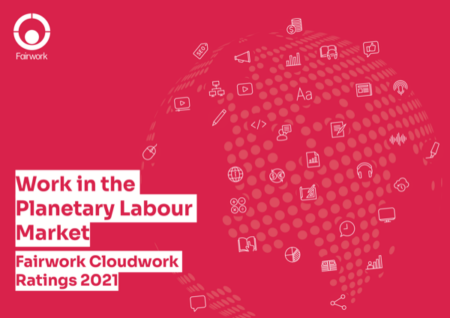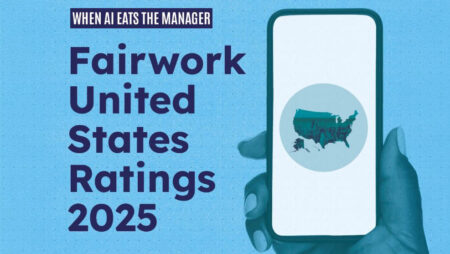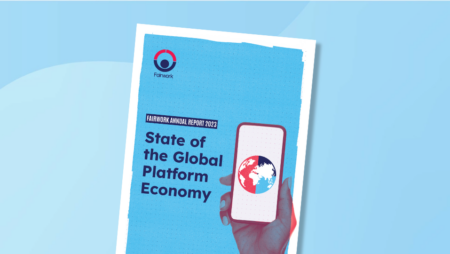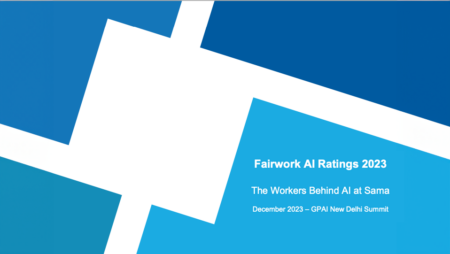
Walking the walk
This project seeks to apply the principles of AI for Fair Work, by using these as a benchmark for empirical on workers’ experiences of the implementation of AI systems in the workplace.
Funda Ustek Spilda was a Senior Researcher and Project Manager at Fairwork. She was responsible for the overall coordination of the network and its sub-projects, and relations with Fairwork funders and partner institutions. She was involved in multiple research projects at Fairwork, and regularly writes on issues of labour conditions in the platform economy, from various angles such as ethics, fairness and justice.
She holds a D.Phil from the University of Oxford in Sociology (2015) and an MSc from the same university in Comparative Social Policy (2010). In her doctoral thesis, she studied survival strategies of women workers in Turkey as they navigated various jobs in the informal labour market.
Prior to joining Fairwork, Funda held postdoctoral researcher positions at ARITHMUS: How data make a people (ERC Research Project, 2014-2018) based at Goldsmiths, University of London; and VIRT-EU: Values and Ethics in Innovation for Responsible Technology in Europe (EC FP7 Horizon 2020 Project) based at the London School of Economics.

This project seeks to apply the principles of AI for Fair Work, by using these as a benchmark for empirical on workers’ experiences of the implementation of AI systems in the workplace.

Drawing on the five OECD principles for responsible stewardship of trustworthy AI, this project proposes developing a set of accountability mechanisms to ensure AI systems foster fairer working conditions.

The Fairwork project aims to ameliorate working conditions by closely engaging with and supporting platforms to improve their policies. This project aims to implement the established methodology and approach of Fairwork in Ghana.
I conduct my research in line with the University's academic integrity code of practice.

With Dr Funda Ustek Spilda, and Srujana Katta
In this webinar, Funda Ustek-Spilda and Srujana Katta will talk about the Fairwork Project, an action-research project at the Oxford Internet Institute.
By Kelle Howson, Hannah Johnston, Nancy Salem, Robbie Warin, Fabian Ferrari, Yihan Zhu, Pablo Aguera Reneses, Funda Ustek-Spilda, Daniel Arubayi, Srujana Katta, Shelly Steward, Matthew Cole, Adam Badger, and Mark Graham
What sort of working standards do gig economy remote workers face? This Fairwork report scores 17 platforms on the conditions they offer, and highlights the failure to offer basic standards of fairness across much of the cloudwork industry.


5 March 2025
New report by the University of California, Irvine, King’s College London and Oxford University reveals best and worst practices in the platform economy in the US.

2 July 2024
Fairwork researchers propose recommendations for the incoming government, to provide a foundation for fairer and more sustainable platform work in the UK.

31 January 2024
A new report from Fairwork researchers sheds light on the challenges and opportunities facing workers in the gig economy.

12 December 2023
Fairwork researchers help to improve employment conditions for AI workers through launch of new report into working practices for internet workers.

Personnel Today, 09 June 2022
Only three of the UK’s most well-known digital labour platforms – Getir, Gorillas and Pedal Me – ensure their workers earn the minimum wage, a new study suggests.

Politico, 21 July 2021
The coronavirus pandemic may have caused the worst jobs crisis since the Great Depression. And yet, for the gig workers that so many businesses and consumers have come to rely on.

Politico, 24 September 2020
Gig economy platforms like Uber, Deliveroo, Bolt and Glovo failed to compensate workers enough for lost income during the pandemic and still don't offer sick pay despite increased risks of infection.